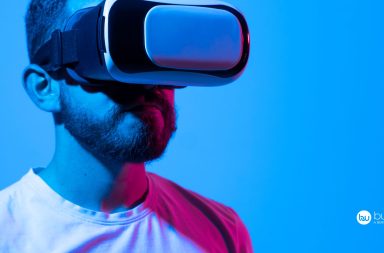Digital therapeutic delivers gold-standard treatment for nonspecific back pain, improves function and quality of life outcomes.
- Kaia Health users experienced pain reduction of 1.85 points after only 3 months
- Cost-effectiveness analysis shows a reduction in healthcare costs of up to 80% versus traditional care
- Federal Joint Committee (G-BA),3 has recommended applying the approach of Rise-uP to the standard care for patients with nonspecific back pain.
NEW YORK–(BUSINESS WIRE)–#ClinicalTrial–Kaia Health, the largest global digital therapeutics company on a mission to make high-quality, evidence-based therapies accessible to anyone, anytime, today announced results from the Rise-uP randomized controlled trial, which demonstrated that the use of digital multimodal therapy leads to a significant reduction in back pain. After the 12-month trial period, study participants who engaged with the Kaia Health app experienced a 46% percent reduction in pain and significant improvements in functional capacity and mental and physical quality of life metrics.
Back pain affects 8 out of 10 people at least once in their lives1. For those experiencing chronic low back pain, 85% of disorders have no known cause or is non-specific 2.
The study included 1,245 adults with acute, subacute, or recurring non-specific back pain who were evaluated 4 times over a 1-year period.
Participants were given access to the Kaia Health app which uses a multimodal therapy concept, considered the gold-standard treatment for back pain. The program combines physical exercise, relaxation, breathing techniques, and education about the causes of pain, diet and lifestyle modifications, and stress management.
When compared to participants in the control group who received traditional care, Kaia Health users’ pain was reduced by 1.85 points after only 3 months and 2.55 points after 12 months on an 11-point numeric rating scale. Pain reduction in the control group was only 24%. The difference remained even when controlling for other factors such as age and pain duration.
Participants in the intervention group also experienced significant improvement in their functional ability, anxiety, depression, stress, and mental and physical quality of life.
“As the world’s most clinically validated digital musculoskeletal solution, we have a steadfast commitment to research,” according to Nigel Ohrenstein, president of Kaia Health. “This study further demonstrates the efficacy in reducing pain for the millions of people who experience back pain and improves overall quality of life.”
The study also included a cost-effectiveness analysis that showed a reduction in healthcare costs of up to 80% versus traditional care.
As a global company, it is a significant accomplishment for Kaia Health to be among the few digital therapies to be recognized by the Federal Joint Committee (G-BA),3 who recommended applying the approach of Rise-uP to the standard care for patients with nonspecific back pain. Rise-uP is the largest randomized controlled trial of a digital health application and is backed by the German Innovation Fund.
About Kaia Health
Kaia Health is the world’s largest digital therapeutics company that creates accessible, evidence-based treatments for a range of conditions, including MSK pain and COPD. Kaia Health covers 60 million lives globally, and its clinically proven motion analysis capability is transforming and democratizing healthcare through technology that patients can access anytime, anywhere, with the camera of their smartphone or tablet. Kaia Health is the most clinically validated digital MSK provider, and its motion analysis technology is as accurate as physical therapists in suggesting exercise corrections, resulting in equitable care regardless of BMI, age, gender, or location. Kaia Health is a member of the Digital Therapeutics Alliance (DTA) and has offices in New York and Munich. Learn more at www.kaiahealth.com.
References
1. Back Pain. MedlinePlus. Accessed July 20, 2022. https://medlineplus.gov/backpain.html
2. O’Sullivan P. Diagnosis and classification of chronic low back pain disorders: maladaptive movement and motor control impairments as underlying mechanism. Man Ther. 2005;10(4):242-255. doi:10.1016/j.math.2005.07.001
3. Decision of the German Innovation Fund of the Federal Joint Committee. Gemeinsamer Bundesausschuss. Accessed July 29, 2022. https://innovationsfonds.g-ba.de/beschluesse/rise-up-ruecken-innovative-schmerztherapie-mit-e-health-fuer-unsere-patienten.86
Contacts
Media
Olga Eskinazi
VP Global Brand



